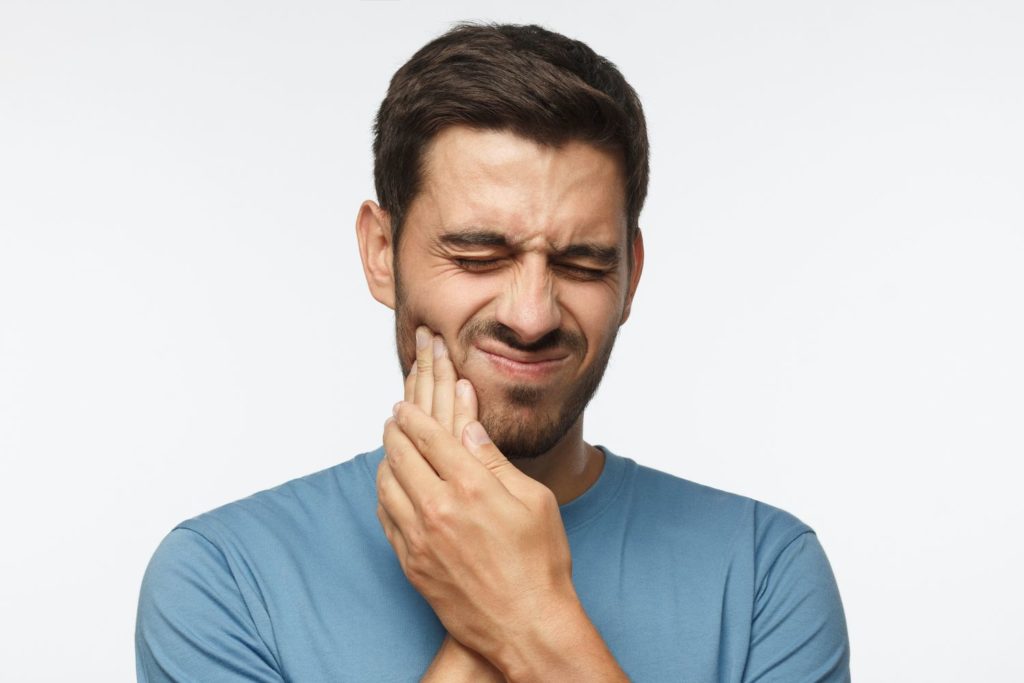Bruxism or teeth grinding is a condition in which someone grinds their teeth or clenches their jaw. Typically, bruxism occurs while you are asleep, and it is a symptom of sleep disorders. However, it is common among people who have anxiety, anger issues, or high-stress lives. For those patients, it is usually seen as a coping mechanism.
If the grinding is mild, you may not need to seek treatment. However, it is likely that grinding your teeth can cause long-term damage to your teeth and facial muscles. Therefore, it is best to contact your dentist for treatment options. For example, your dentist can make a custom mouthguard that can help cushion your teeth from damage. Otherwise, you are at a higher risk of developing many other issues.

Tooth Erosion
As your teeth grind on each other, it slowly wears away at your enamel. The enamel is the protective layer on the outside of your teeth. When you look in the mirror, the enamel is the whitish color of your smile. The enamel is responsible for protecting your teeth from bacteria and other damaging substances. Damaged enamel cannot prevent dental issues like tooth decay or infection.
Much like when two rocks move against each other, small bits of your teeth grind away. Over time, the enamel will wear away until it is practically gone. This can increase your risk of developing dental issues. On top of tooth decay, enamel erosion can cause sensitivity in your teeth. As the enamel erodes, more of your nerves become exposed. This causes pain and sensitivity to temperatures and sugar.
Headaches
A common problem with patients who grind their teeth is headaches. When you grind your teeth, it creates tension along your jaw and neck. This tension can cause headaches. There is a condition called temporomandibular joint disorder or TMJ. One of the causes of TMJ is teeth grinding. Because grinding your teeth puts so much pressure on your jaw, it can create a malformation in the joints, muscles, or tendons. Without treatment, you can experience chronic headaches.
Additionally, TMJ can cause more problems, including facial pain or pain that feels like an earache. This can affect the ability of your mouth to open and close without pain or discomfort. In extreme cases, TMJ can cause the jaw to “lock” or freeze. When this happens, you may need surgery to correct it.
Chipped or Broken Teeth
When you grind your teeth, it puts unnecessary pressure on your teeth. Your teeth cannot endure the stress of teeth grinding, especially on the points and ridges. Therefore, your teeth can chip or break if you don’t get a mouthguard to protect them.
Chipped and broken teeth can physically alter your smile in a way that ruins your confidence or self-esteem. In addition, however, you are at an increased risk of developing tooth decay. Because there is damage to the enamel, bacteria can enter your tooth, creating decay.
